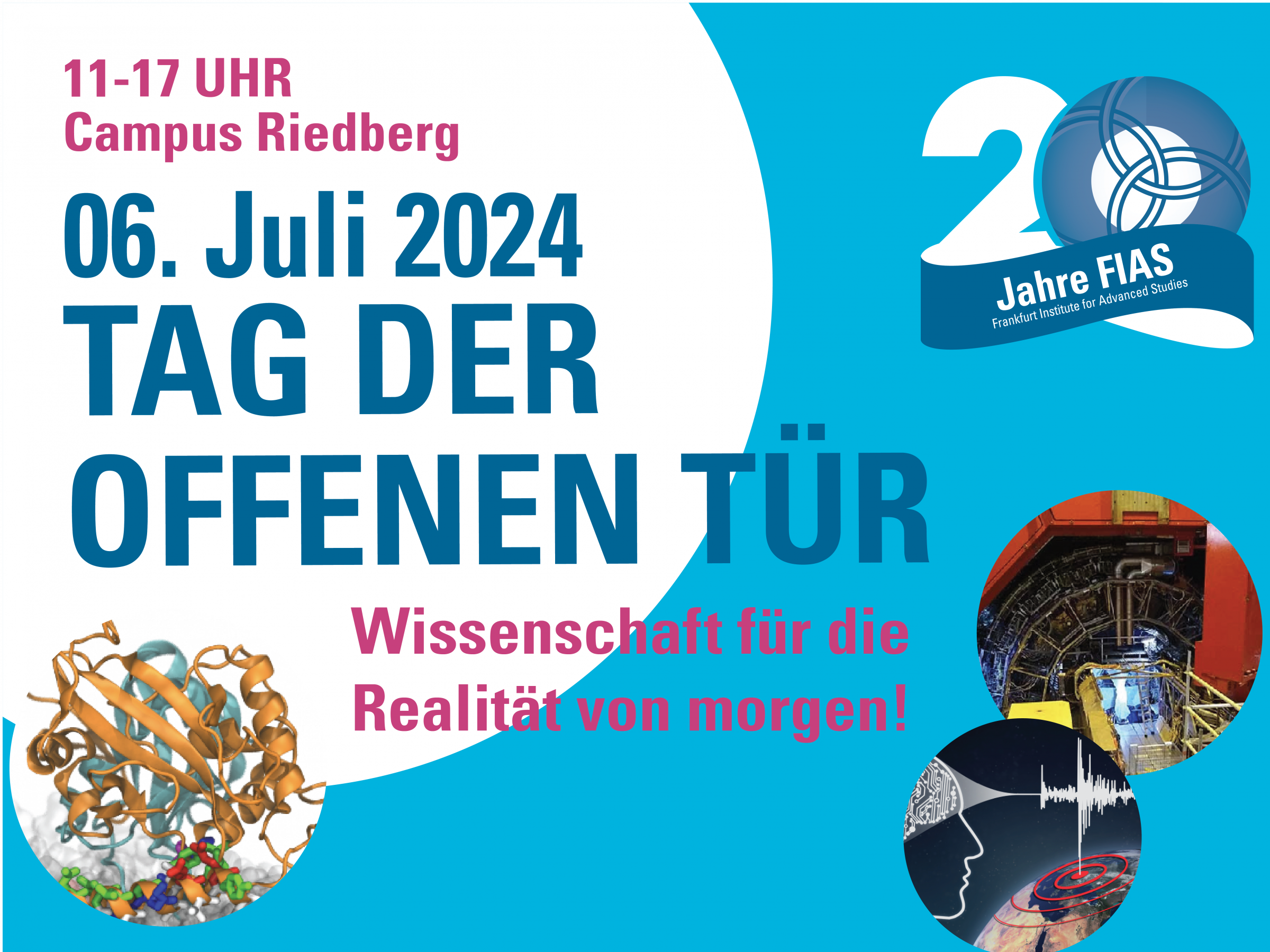July 1, 2024
20 years of FIAS: Open Day
On 6 July from 11 a.m.: hands-on experiments, short lectures, cake.
Next Saturday, FIAS will be opening its doors to the public to celebrate its 20th anniversary: Anyone who wishes to control the football with their mind in front of the television - FIAS research makes it possible! More hands-on experiments, short, easy-to-understand presentations, a children's programme as well as coffee and cake will attract visitors to the striking red building on the Riedberg with a view of the skyline.
"As long as people intervene in the fate of the world, they are obliged to explore what is knowable," wrote neurobiologist Wolf Singer in 2004, who founded FIAS together with physicist Walter Greiner. This Saturday, young and experienced alike can follow this drive of human curiosity to understand the world: What is an algorithm? How can drugs be controlled with light? And what happened after the Big Bang?
The researchers at FIAS devote themselves to these and many other questions in their daily work. As a theoretical institute, the focus is primarily on simulations and calculations. The incredibly large amounts of data that can nowadays be obtained or predicted in experiments worldwide have to be filtered, sorted and analysed. This applies to tiny molecules in cells as well as to distant events in stars and galaxies.
From the very beginning, the FIAS logo has symbolised these links and what connects our world. Today, more than 130 employees from 23 countries conduct interdisciplinary research in the fields of biology and neuroscience, computers and artificial intelligence as well as physics and theoretical natural sciences. With their simulations and theories, they contribute to tackling the challenges of our time: They research how we learn and think, develop prediction models for earthquakes, volcanic eruptions, and thunderstorms, investigate the nature of black holes and optimise computers to make them more sustainable.
As a foundation institute, FIAS lives from its supporters: first and foremost the Goethe University Frankfurt as well as many generous private donors and sponsoring companies who have made research at FIAS possible over the course of two decades.One focus is on the promotion of young scientists: from the very beginning, the FIAS International Graduate School for Science (FIGSS) has supervised doctoral students on an interdisciplinary basis; it promotes research at the interface between the classical sciences.
May the fascination of the knowable at the Open Day also attract the next generation to the sciences at FIAS: All are welcome!
